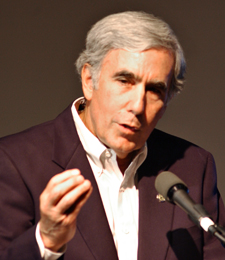Archive for July, 2016
Turkey’s coup – One more problem for NATO
By Jan Oberg
Commenting on Russia Today
July 16, 2016
Tony Blair- Evil big enough to be charged for war crimes
By Jonathan Power
The crime of aggression (“planning, preparation, initiation or waging of a war of aggression”) was described by the Nuremberg Tribunal that tried Nazi leaders as “the supreme international crime differing only from other war crimes in that it contains within itself the accumulated evil of the whole”.
President George W. Bush and British prime minister, Tony Blair, have been accused by many as war criminals for starting the war against Iraq and, second, for not watching carefully enough to make sure that war crimes carried out by individual soldiers were not covered up, and for the torture that Bush initiated and Blair appeared to tolerate.
Did Blair lie over the reason for going to war with Iraq – the supposed stockpile of weapons of mass destruction that Iraq possessed? It depends how you define lie. If you define lie as saying this cat is black when in fact it’s white he didn’t on the big issues. But what he did do was to give the impression the cat was assuredly white when in fact it was a sort of greyish.
But as the just published government commissioned report made by a distinguished civil servant, John Chilcot, has made clear the caveats were left out of intelligence briefings and the presentation was polished by the prime minister’s office.
We in the public didn’t have the pre-polished version but Blair did and he must have known in his mind, if not his heart, he was taking a gamble with the evidence. Read the rest of this entry »
Escalating conflicts on the way to peace and justice

By Majken Jul Sørensen & Jørgen Johansen
This article is a short version of a text which was first published with the title “Nonviolent Conflict Escalation” in Conflict Resolution Quarterly, 2016. DOI: 10.1002/crq.21173. In this longer article you can find references to all our sources.
”We have mapped all the conflicts in the world” a senior researcher at PRIO (Peace Research Institute Oslo) told one of the authors at a seminar a couple of weeks ago. If that was true, it would be pretty impressive.
Each of the seven billion people living on earth at the moment are likely to have a considerably number of conflicts every year with their partners, neighbours, friends and family members.
However, the large majority of these conflicts are dealt with in a peaceful and creative manner. Although they can feel burdensome in the heat of the moment, many of them are a way for people to grow as persons and learn more about themselves and each other.
But of course, it was not all these conflicts the senior researcher at the seminar had in mind. She was talking about the UCDP/PRIO Armed Conflict Dataset which includes violent conflicts involving at least one state. However, her statement is symptomatic for an attitude which seems to be widespread within mainstream peace and conflict studies: because they so often focus on violent and destructive conflicts, their language gets “contaminated”.
Thus there is a strong tendency to associate conflict with violence and something undesirable which should be avoided and de-escalated. Just as important, this perception of conflict also ignores all the large-scale societal conflicts fought along nonviolent lines.
In this text we examine some of the ways that nonviolent stakeholders have deliberately and persistently escalated conflicts, and show how such escalations have been fundamental for them to achieve their goals. These actors have created visibility for hardly recognised injustices and highlighted issues that have endured in the shadows of history.
This approach is the opposite of preventing conflicts; rather, it aims to escalate them in order to create change. It counters both the association of conflict with violence and contributes to a deeper understanding of nonviolent resistance. Read the rest of this entry »
The Chilcot Report and the basic question: Why?
By Gunnar Westberg
After the terrorist attack on the World Trade Centre in New York on the 11th of September 2001 President George W. Bush felt the need for revenge. Since years back, the US had developed plans to attack Iraq. Its dictator Saddam Hussein had been left in power after the First Gulf War in 1991, a war which the father of George W. Bush had left unfinished.
The real reasons for this renewed war on Iraq are not known.
Saddam Hussein had previously had a program to produce nuclear weapons. After thorough investigations lead by the UN representatives Rolf Ekéus and Hans Blix it became clear that all weapons of mass destruction had been eliminated. There were no nuclear weapons.
However, Saddam Hussein could of course start the production of nuclear weapons at some point in the future. And the US leaders choose to disregard the reports by the UN inspectors. “I do not want the smoking gun to be a nuclear detonation over Manhattan” said Condoleezza Rice, Secretary of State, and on the TV screen a mushroom cloud rose over New York. That picture spoke more strongly than the reports by Hans Blix.
The UN Security Council did not support an attack on Iraq. There were demonstrations against the war, in the USA and in the world, probably the biggest peace and pre-war demonstrations in the world at any time. But the decision to go to war seems to have been taken, unchangeable. Read the rest of this entry »
20 years ago nuclear weapons were judged to be illegal
By David Krieger
July 7 , 2016
The International Court of Justice (“Court,” or “ICJ”), the world’s highest court, issued its Advisory Opinion on the legality of the threat or use of nuclear weapons on July 8, 1996. Thus, this week marks the 20th anniversary of that momentous opinion.
The Court found in a split vote (7 to 7), with the casting vote of the Court’s president Mohammed Bedjaoui deciding the matter, that the threat or use of nuclear weapons would generally be illegal under international law. The Court could not determine whether it would be legal or illegal to threaten or use nuclear weapons “in an extreme circumstance of self-defense, in which the very survival of a State would be at stake.”
Three of the judges voting to oppose general illegality, however, were concerned with the word “generally” and wanted the Court to go further and remove any ambiguity about the illegality of threat or use of nuclear weapons.
Judge C.G. Weeramantry, for example, argued in a brilliant dissenting opinion “that the use or threat of use of nuclear weapons is illegal in any circumstances whatsoever.”
Thus, in actuality, ten of the fourteen judges supported either general illegality or total illegality of the threat or use of nuclear weapons.
The Court also found unanimously that Read the rest of this entry »
Presidential Visit – A Poem
PRESIDENTIAL VISIT
The President went to Hiroshima,
the place of the first atomic attack.
He carried his heart in an old knapsack.
He went where no sitting president
ever ventured before, journeyed
through time to a long ago war.
He stood at the very place where death
fell from the sky, where the mushroom cloud
sucked up the earth, rose higher than high.
His words poured forth like a passionate poem,
a poem filled with power, as he placed
a white wreath on a sea of white foam.
He bowed before the city’s eternal flame,
cried out for a world deeply in pain,
swore we must not let it happen again.
We must choose our vantage point well,
above the bomb or beneath, On one side
is hubris, on the other is grief.
David Krieger
June 2016
Are we heading toward global autocracy, ecological collapse and political malaise?
By Richard Falk
What follows are preliminary reactions to both the BREXIT vote and the world according to Trump, but also a commentary on the related alienation of large segments of the public that are being badly served by both the established elites and their demagogic adversaries.
The failures of neoliberalism, the successes of digitization, the scourge of random violence, and more broadly, the dilemmas posed by late modernity are among the root causes of this global crisis of legitimate governance, which is deepened while being mishandled by unprecedented ecological challenges, extremely irresponsible geopolitical leadership, and a variety of ultra-nationalist backlashes against the encroachments of economic globalization.
Imagining the World After the Cold War
After the end of the Cold War there were various projections that tried to anticipate the likely future of the world in broad interpretative strokes. Three of the most influential conjectures by three prominent American authors received attention in the public sphere: those of Francis Fukuyama, Samuel Huntington, and Robert Kaplan.
Fukuyama challenged conventional political imagination with his provocative claim that with the collapse of the Soviet version of state socialism and the triumph of capitalist liberalism the world had reached ‘the end of history.’ It was also somewhat dubious that Fukuyama validated his views by reference to the Hegelian contention that history is made by the march and interplay of ideas rather than through the agency of material forces.
In this respect history came to a supposedly glorious end because there was no grander possible political vision than that of market-based constitutionalism, epitomized by the American political system. Even the most casual observer of the global scene must have noticed the befogged Western optic through which Fukuyama saw the world.
Huntington, no less provocative or biased, although less comforting for the West, anticipated a ‘the clash of civilizations’ as the sequel to the Cold War, especially stressing the confrontation between the liberal West and the non-West or simply ‘the rest.’ His suggestive emphasis was on blood-soaked fault lines between states, civilizations, and peoples associated with Islam and the Western polities descending from the Enlightenment tradition as it unfolded in Europe, taking root in North America and elsewhere.
Kaplan, also punctured the Fukuyama triumphalist tone of geopolitical serenity, by writing Read the rest of this entry »
The Positive Peace Index is charlatanism
By Johan Galtung
PPI pretends to be an index of positive peace/peaceful society. But is more like an index of “positive for business environment”; by the Institute for Economics & Peace, more economics than peace.
To explore this, imagine we want an index of health. Obviously, we need criteria of health to know what we are talking about, like:
For negative health: absence of illness from the outside–contagion- shocks–and structural from the inside–cardiovascular-tumors-mental.
For positive health: balance in body-mind-spirit and socially; a sense of wellness being alive using body-mind-spirit at work, and in love.
Then, the indicators, the index, the forefinger pointing the way: preventive health, protection–distance–inoculation-quarantine, of the body with clothes-housing; avoiding fire and shocks (not falling for elderly!); adequate sewage-personal hygiene-nutrition-exercise; curative health for acute and chronic diseases.
However, we also need an index of illness to know what we are up against, defined as inability to work, to love, morbidity.
And all of this for individuals, aggregated to groups in society, for states, for groups of states (regions), for the world; per capita.
Then, the correlates, factors that “have something to do with it” but the relation is problematic. Take number of dentists. A criterion of health is caries-free teeth; dentists manage that. Nevertheless, so does personal hygiene-brushing teeth-adequate nutrition. Stone Age people had, like animals, good teeth: adequate nutrition. Dentists can help; but increase dentists per capita and we have a typical correlate that may even be counter-productive: “I do not take care of my health because dentists-physicians will take care of me”. Is that health?
Of indicators, we expect “the more the better”–up to a point. Not necessarily linear, could be exponential, then flatten out. But correlates are often A-shaped: productive, then counter-productive.
Over to peace
We need an index of Read the rest of this entry »
Russia and China right now
By Johan Galtung
The background is the two major communist parties in the world. Russia Communist Party-Bolshevik made the November 1917 revolution; from 1922 the Communist Party of the Soviet Union, CPSU(b). CPC, the Communist Party of China, now celebrating its 95th anniversary, made the 1 October 1949 revolution. World-shaking events; in the world’s biggest state in area and in the world’s biggest state in population.
The revolutions cut into the modernity contradictions in the State-Capital-People triangle by conquering State-military and police. Two lasting achievements of CPSU(b): State Planning of the economy – maybe five years at the time, pjatiletka – now found in most countries; and lifting some bottom up to meet basic needs, surprisingly quickly. But CPSU(b) exercised gross structural violence in the countryside. And CPC, imitating CPSU(b), made the same mistake to start with.
Then they became different. Russia got stuck with the Party on top of the State, for some people, but not by the people. CPC, like CPSU, did not – and still does not – permit FAFE, fair and free elections at the national level. But China gave People a voice in the 70,000 People’s Communes, helping them lift themselves up when in misery.
China did not see State and Capital as either-or; like Bolshevik Russia opting for State through expropriation, and neo-liberal USA for Capital through privatization, manipulating and spying on the People. China opened for the neither-nor local level, for the compromise of some welfare state, and for the both-and of their capi-communism.
This intellectual-political flexibility, rooted in daoist holism and an unending force-counter-force dialectic, not in Western faith in a final state, Endzustand, opened for two very different “communisms”.
How are they doing these days, those two communist parties?
The Russian party is out for the time being; and in came capitalism. But over and above that discourse looms the history of a huge Russian Orthodox empire attacked by Vikings, Mongols-Tatars, Turks, Napoleon and Hitler, Catholic Christianity, and Cold Wars with extremist US evangelism, now over Ukraine too.
Yeltsin – hated by Gorbachev (INYT, 3 Jun 2016) – gave the West what they wanted.
Popular Putin tries to build autonomous Russia without Western-capitalist imperialism, probably successful in the longer run. However, in Russia the long run is very long. Read the rest of this entry »
Perhaps genocide be stopped?
By Jonathan Power
July 5th 2016.
After Hitler’s Final Solution – the elimination of the Jews – came Cambodia’s Khmer Rouge and the murder of two million of the country’s people. After that came Rwanda when at least a million of the Tutsi people were slaughtered en masse by the Hutus. More recently we have seen large-scale killing in Sudan and now in Syria. The latter two can’t be called “genocide”- the attempt to totally eliminate a people – but the first three certainly were.
However bad that sounds the evidence is, whether it be genocide or mass slaughter, there has been significantly less of it during the last 50 years, despite the fact that most of us recall the horrors – thanks to the TV news producers’ mantra “if it bleeds it leads” – not the steady lessening of its frequency.
We are in the middle of a long-term downward decline in mass violence. Both frequency and intensity are much reduced. Even the recent increase in violent instability in the Middle East, North Africa, the Central African Republic, northern Nigeria and southern Sudan has not reversed this overall decline.
In his landmark book, “The Better Angels Of Our Nature” Harvard professor, Steven Pinker, writes that this decline in atrocities is part of a broader and longer decline in violence. He attributes that trend to changes in cultural and material conditions that increasingly favour and reward our cooperative instincts over our more violent ones. Read the rest of this entry »





